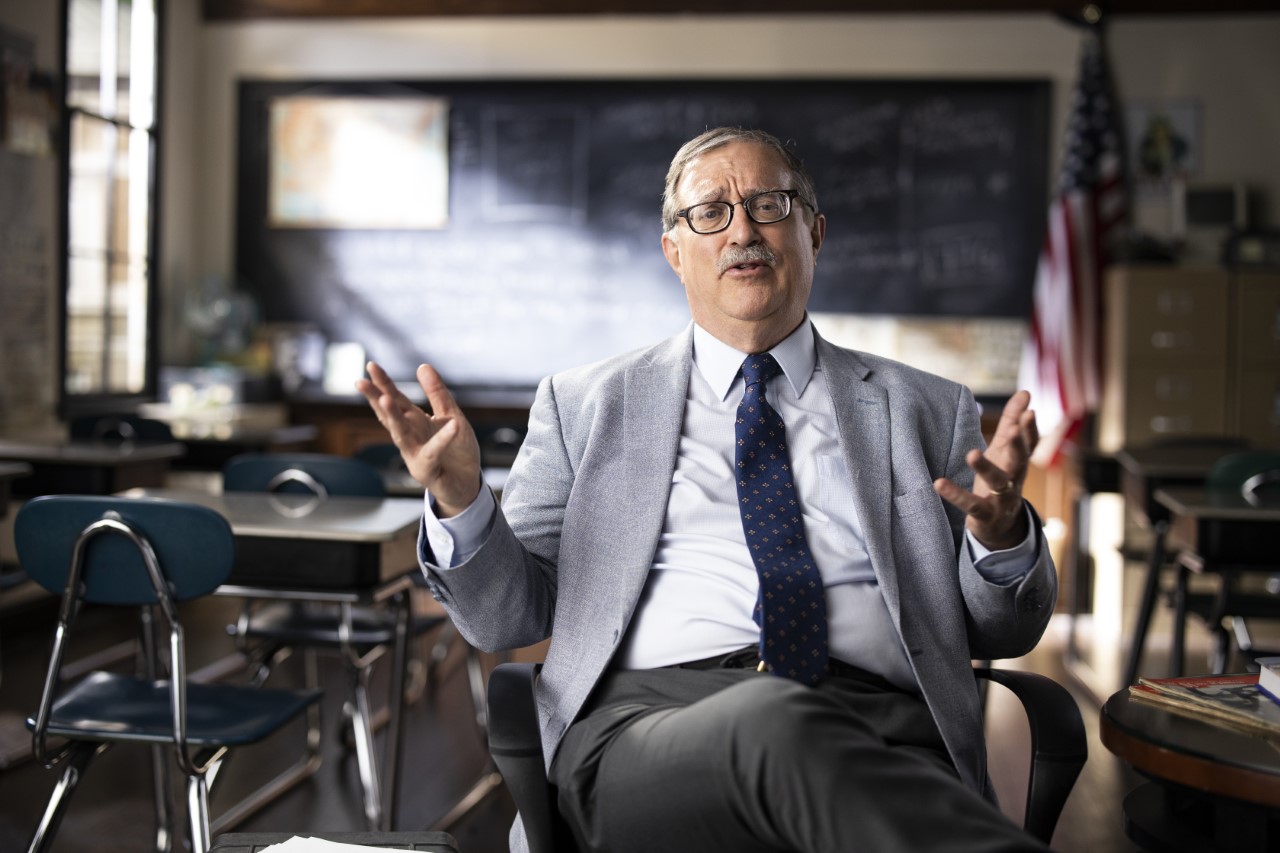
Hillsdale College has launched an online course which it hopes will, in part, combat popular media’s revisionist history like the New York Times’ 1619 Project.
The course, titled “The Great American Story: Land of Hope,” launched on Feb. 12. It aims to offer a “broad and unbiased” look at the achievements and failures of America’s past, according to Hillsdale’s website.
Kyle Murnen, director of online courses at Hillsdale, said the idea for the course came after historian Wilfred McClay published an American history textbook called “Land of Hope: An Invitation to the Great American Story” in 2019.
“It’s very difficult to write a one-volume narrative history of America, and ‘Land of Hope’ is especially good: compact, serious, witty, and surprisingly comprehensive for a 400-page history book,” Murnen said. “In fact, the book has been adopted as a high school American history textbook in our Barney Charter School Initiative and is used as a supplementary text in several sections of the American Heritage course here.”
The course, consisting of 25 lectures, begins with Christopher Columbus’ arrival in America and ends with a lecture that considers how best to mend the cultural divisions in the nation today.
According to Murnen, “The Great American Story: Land of Hope” is unbiased and patriotic.
“The course is unbiased because it aims at providing an accurate picture of what happened in the past. It is also patriotic, in the sense that it aims to promote the type of intelligent patriotism necessary to preserve the blessings of our free government,” he said. “Those two aims are not mutually exclusive.”
In the introductory video to the course, McClay talked about why it’s important to study history.
“There’s a tendency to think we can decide questions of principle by reference only to abstractions,” McClay said in the video. “History is concrete. History fills in the blanks with real-world events and real people, things that actually happened, and we can test out our principles by seeing how they operate.”
Murnen said the course offers an alternative to how people usually approach American history today.
“The course is aimed at teaching American citizens about the great narrative story of our nation,” he said. “Every citizen should know the ideas, people, and events that are responsible for the great achievements in our nation’s history, and also its shortcomings.”
In contrast, the New York Times’ 1619 Project seeks to teach American history by attributing American achievements to the institution of slavery.
The New York Times’ website says that “out of slavery — and the anti-black racism it required — grew nearly everything that has truly made America exceptional: its economic might, its industrial power, its electoral system, its diet and popular music, the inequities of its public health and education, its astonishing penchant for violence, its income inequality, the example it sets for the world as a land of freedom and equality, its slang, its legal system and the endemic racial fears and hatreds that continue to plague it to this day.”
In the course’s introductory video, Hillsdale College President Larry Arnn discussed how the course strives to teach “good history.”
“Good history will be an accurate picture of what happened in the past, with a sympathy for the people so that one can learn from them,” Arnn said. “It gives us a fixity that is made up of things that at the time were constantly shifting and hard to estimate.”
The New York Times said its goal for the 1619 Project was to re-evaluate American history.
According to the Times’ website, “the goal of The 1619 Project is to reframe American history by considering what it would mean to regard 1619 as our nation’s birth year. Doing so requires us to place the consequences of slavery and the contributions of black Americans at the very center of the story we tell ourselves about who we are as a country.”
In one edition of Imprimis, McClay wrote that “the story of America has been fractured into a thousand pieces and burdened with so much ideological baggage that studying history actually alienates young Americans from the possibility of properly appreciating their past.”
McClay said he instead wanted to take an accurate but empathetic look at America’s past.
In the epilogue to “Land of Hope,” he wrote that the textbook “never loses sight of what there is to celebrate and cherish in American achievement.
“That doesn’t mean it is an uncritical celebration,” he said. “The two things, celebration and criticism, are not necessarily enemies. Love is the foundation of the wisest criticism, and criticism is the essential partner of honest and enduring love.”

